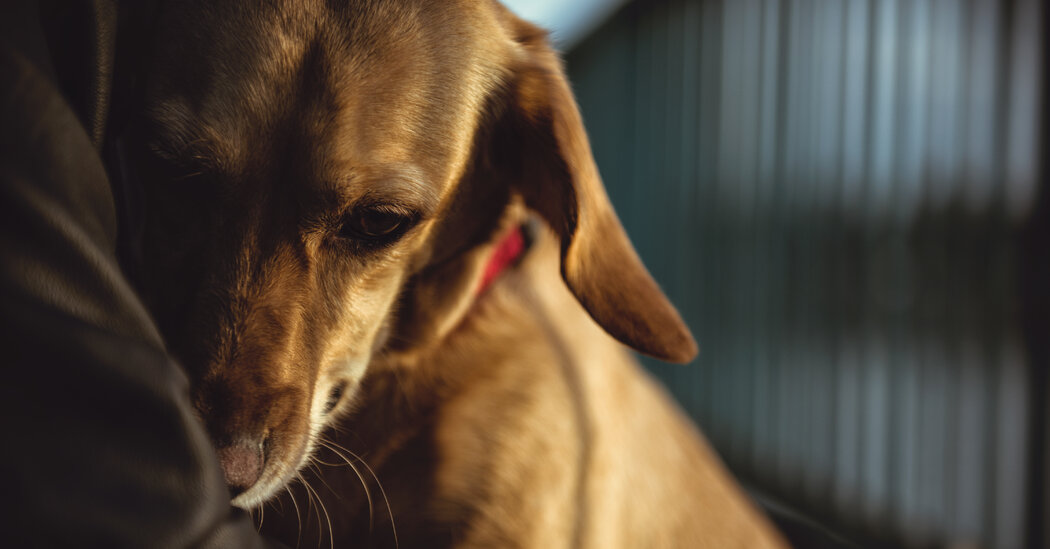
On “The Daily Show” this week, the host Jon Stewart broke down as he announced the death of his beloved, three-legged brindle pit bull, Dipper — a raw, touching segment that exemplified the deep grief many pet owners feel.
When an animal dies, owners lose companionship, affection and “just plain unconditional love — and we don’t find that in many places in our lives,” said Sherry Cormier, a psychologist and author of “Sweet Sorrow: Finding Enduring Wholeness After Loss and Grief.”
Our society tends to be “grief-phobic,” Dr. Cormier said, and there is a sense that the feelings prompted by the loss of a pet are relatively low in the hierarchy of suffering, or that it’s something that people should be able to cope with and move on from quickly. Dr. Cormier and other loss experts said that is not always true; and they shared ways to help a loved one through the loss of a pet.
Validate the owner’s loss.
Pet loss can lead to disenfranchised grief, meaning it is not validated or acknowledged by the wider world, said Michelle Crossley, an associate professor at Rhode Island College and vice president of the Association for Pet Loss and Bereavement. Therefore, “a lot of individuals end up grieving in isolation because of fear of rejection from other people,” she said, adding, “They worry that they won’t understand or they’ll minimize the loss.”
Keep it simple when expressing your sympathies, Dr. Cormier said. She suggested something like: “I know your animal was such an important part of your life and family. I can see how much he meant to you and how much you’re already missing him.”
Pet grief is often complicated by feelings of guilt if your friend or loved one opted to put an animal down to minimize suffering, Dr. Cormier said. She has done so with two golden retrievers, but noted the circumstances were quite different. One lived a long, happy life; the other had to be put down unexpectedly because of an aggressive brain tumor.






